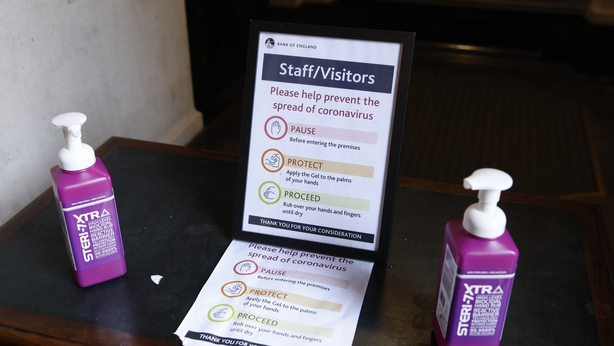Bank of England Governor Andrew Bailey warned today that escalating Covid-19 cases threatened the outlook for Britain's economy.
But he pushed back against speculation that the central bank could soon cut interest rates below zero.
There were "hard yards" to come and the Bank of England would do everything it could to support the economy, Bailey said at an online talk hosted by the British Chambers of Commerce.
New Covid-19 cases are rising by at least 6,000 a day in Britain, according to week-old data, hospital admissions are doubling every eight days, and the testing system is buckling.
"We're very unfortunately seeing a much faster and larger return of Covid. Obviously that does reinforce the downside risks we see in our forecast," Andrew Bailey said.
The UK government said today that pubs and restaurants must shut by 10pm from Thursday onwards, and urged people to work from home where possible, reversing its previous call for employees to return to offices.
Last week the Bank of England said the economy had been recovering faster than it had expected in August, but that a resurgence in coronavirus cases could derail this.
Britain's difficulty reaching a post-Brexit trade deal with the European Union, and broader global trade tensions, were also risks, Bailey added.
Andrew Bailey said parts of the retail sector and the housing market had been performing strongly, but he was concerned the underlying rate of unemployment was higher than the most recent 4.1% official figure for the three months to July.
The Bank of England forecasts unemployment will rise to 7.5% later this year, after a government job support programme ends next month.
Andrew Bailey said the furlough scheme had been useful, but any replacement was for finance minister Rishi Sunak to decide on.
Last week the Bank of England said it would look into how in practice it could take interest rates below zero - something Bailey and other policymakers said previously was an option.

Some people in financial markets read this as a signal that the bank was growing more enthusiastic about negative rates, which put downward pressure on sterling, but Bailey rejected that today.
"It doesn't imply anything about the possibility of us using negative instruments," he said. "We have looked hard at the question of what scope is to cut interest rates further and particularly negative interest rates."
The Japanese and euro zone central banks have cut rates below zero to encourage banks to lend instead of holding cash.
Andrew Bailey described other countries' experiences of negative rates as a "mixed bag", with their effectiveness depending on the structure of the banking system and the timing of the move.
Cutting below zero would hurt banks' profits and potentially their readiness to lend, the Bank of England has said - and could create problems with old computer systems not designed to accept negative rates.

